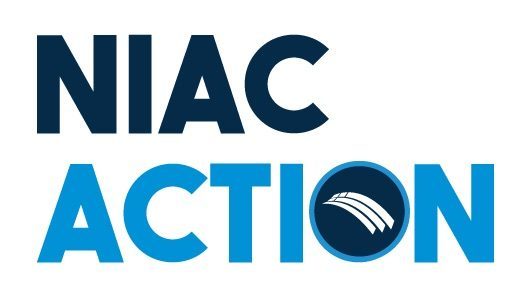One year after the Trump administration’s withdrawal from the Joint Comprehensive Plan of Action (JCPOA), Iranian officials are now signaling they may follow suit and halt compliance with aspects of the accord.
Any potential Iranian non-compliance with elements of the JCPOA would be profoundly unhelpful and escalatory. However, such steps would not occur in a vacuum, but in the context of months of pressure from the White House aimed at provoking Iran into leaving the JCPOA. It is President Trump’s drive to undo his predecessor’s signature foreign policy achievement that has put us on the brink of resuscitating the Iranian nuclear crisis.
Worse still, a forthcoming crisis might not be contained. As a senior Trump adviser recently stated, if Iran halts complying with the JCPOA “the military option comes back on the table.”
JCPOA’s Quid Pro Quo Giving Way to Destructive Tit for Tat
The nuclear deal was based on a quid pro quo in which all sides would obtain real benefits.
- Under the JCPOA, Iran rolled back its nuclear program while enhancing the ability of international inspectors to monitor and verify its nuclear activities. In return, Iran was provided sanctions relief as a means of reconnecting with global financial and economic networks.
- The text of the JCPOA makes clear that Iran has stated it will treat the reintroduction or reimposition of sanctions “as grounds to cease performing its commitments under this JCPOA in whole or in part.”
- The Trump administration has not only reneged on the JCPOA and sought to deny Iran the U.S. and sanctions relief it was due, but it has taken unprecedented additional actions such as designating Iran’s Islamic Revolutionary Guard Corps (IRGC) as a foreign terrorist organization and terminating sanctions waivers for importers of Iranian oil.
- Recently, the Trump administration further boosted those in Tehran arguing for leaving the JCPOA by revoking waivers for shipping out surplus heavy water and enriched uranium, while limiting the extension of waivers for critical nonproliferation work at Arak and Fordow to 90 from 180 days. This signals a disturbing intent to obstruct the nonproliferation side of the JCPOA.
- In the face of the administration’s so-called “maximum pressure” campaign, Tehran has remained restrained for nearly a year and has sought to preserve the accord through cooperation with Europe and other global powers.
- However, increased U.S. pressure has created an increasingly intolerable situation for Iran and has empowered hardline voices in Tehran who believe Iran should pursue a tit-for-tat strategy to raise the costs of U.S. actions against it.
The Looming Specter of War
Since taking over as National Security Advisor last year, Iraq-war architect John Bolton has been steering the U.S. closer to war with Iran.
- On Sunday night, National Security Advisor John Bolton released a statement threatening “unrelenting force” in response to any Iranian attack against U.S. forces in the region.
- Bolton’s alarmist statement comes in the backdrop of a routine deployment of a U.S aircraft carrier group to the Persian Gulf that was expedited and was reportedly based on vague intelligence
regarding potential Iranian plots.
- Last September, Bolton similarly asked the Pentagon to draw up plans for military strikes against Iran in the wake of alleged mortar attacks from Shia militias near U.S. compounds in Baghdad and Basra. Bolton’s request “definitely rattled people,” according to a former administration official. “People were shocked. It was mind-boggling how cavalier they were about hitting Iran.”
- The administration has since appeared to be repeating the George W. Bush administration’s playbook for war with Iraq—inaccurately tying Iran to al-Qaeda, baselessly stating that Iran is pursuing nuclear weapons, and politicizing intelligence assessments on Iran.
- Bolton has long been bent on goading the U.S. and Iran into war and has a history of manipulating intelligence to advance his hawkish agenda. As the top arms control official for President George W. Bush, he claimed Iraq possessed WMD’s to justify the administration’s 2003 invasion.
Choice for the U.S.: Save the JCPOA or Follow Bolton’s Path to War
Rejoining the JCPOA is essential to blocking Iran’s paths to the bomb and addressing other U.S.-Iran disputes.
- Due to the Trump administration’s withdrawal from the JCPOA, Iran’s compliance with the accord is no longer ensured and the nonproliferation benefits from the agreement risk being lost.
- The U.S. is isolated from allies and former negotiating partners that continue to support the JCPOA, has empowered Iranian hardliners and ensured a more rigid negotiating posture from Iran, and now is following the playbook of an Iraq-war architect intent on provoking another disastrous war with Iran.
- The choice to the U.S. is clear: ensure Iranian compliance with the nuclear deal by resuming America’s sanctions-lifting obligations, or follow Trump and Bolton’s disastrous path to war.
- Already, most 2020 Democratic presidential candidates have stated they would return the U.S. to compliance with the JCPOA. Lawmakers should follow suit by clearly stating that the U.S. should return to compliance with the accord.
Halt Bolton’s War Push
Congress must send a clear message that Trump and Bolton do not have authorization to start a war with Iran.
- The Prevention of Unconstitutional War with Iran Act (S. 1039/H.R. 2354), introduced by Sens. Udall, Paul and Durbin and Reps. Eshoo and Thompson, would prohibit the Trump administration from using funds to launch a war against Iran without Congressional approval.
- The Repeal of the Authorization for Use of Military Force bill (H.R. 1274) from Rep. Barbara Lee would repeal the 2001 AUMF and prevent the Trump administration from exploiting the authorization to justify yet another war it was never intended to authorize.
